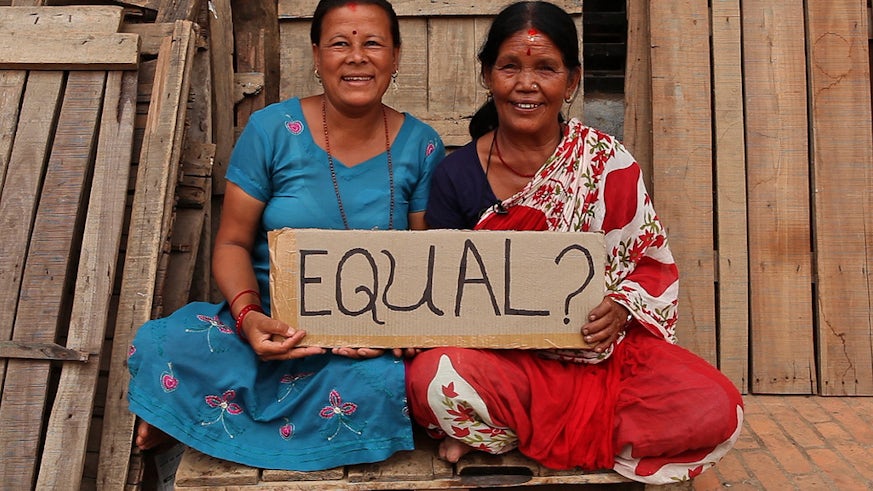Gender equality challenges in South Asia
23 March 2016

New research has revealed the challenges facing India and Nepal.
According to a new study from WISERD’s Civil Society Programme, South Asian governments are failing to fully engage and respond to civil society organisations’ policy demands on women’s rights and representation.
Professor Paul Chaney, who carried out the study, said: “Under the terms of a key United Nations’ agreement, countries are required to listen and respond to civil society organisations when setting governing priorities and law-making. Yet, WISERD’s study of practice in both India and Nepal reveals that, whilst on a rhetorical level politicians have embraced civil society engagement to promote gender equality, the reality is very different. It’s important to address this because world-rankings show how both countries face major gender equality challenges.”
Among the key findings are:
- Pronounced power differences between government and civil society, which are particularly evident in the language used to express policy ideas and the priority given to different policy areas
- Compared to government, civil society organisations in both countries give more than twice as much weight to addressing the discrimination and the oppression of women
- Furthermore, compared to government, civil society organisations in both countries give twice as much weight to addressing economic inequalities facing women. The latter reflecting the fact that, as the study underlines, women bear the brunt of poverty
- In addition, the research cautioned that civil society itself may also be guilty of reproducing patterns and processes of gender inequality because many civil society organisations continue to be male-dominated.
Overall, the analysis highlights many practices which exacerbate existing gender inequalities. These include women’s restricted land, property and inheritance rights. Education is also identified as an arena of inequality with continuing barriers preventing women and girls from participating in education, training and science, not least because policy implementation is impeded by budget constraints.
Reflecting on the analysis Professor Chaney said: “Whilst at rhetorical level, contemporary government advocacy of gender equality in India and Nepal is undoubtedly positive, this new research raises a number of key, ongoing concerns about how those in power are attempting to implement the requirements of UN gender equality agreements.”
Professor Chaney’s paper, The ‘Complementarity Conjecture’ – Does Civil Society Engagement Strengthen Input Legitimacy and Shape Policy Delivery? The Case of Gender Mainstreaming in India and Nepal 2005-15, is published in the Journal of Comparative Asian Development.
